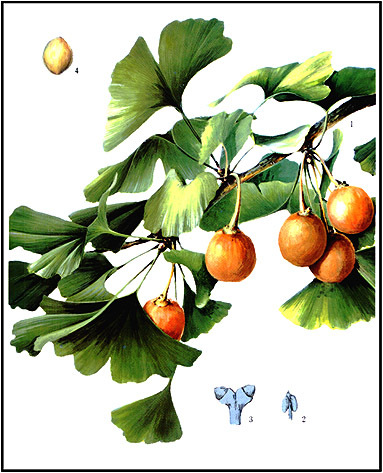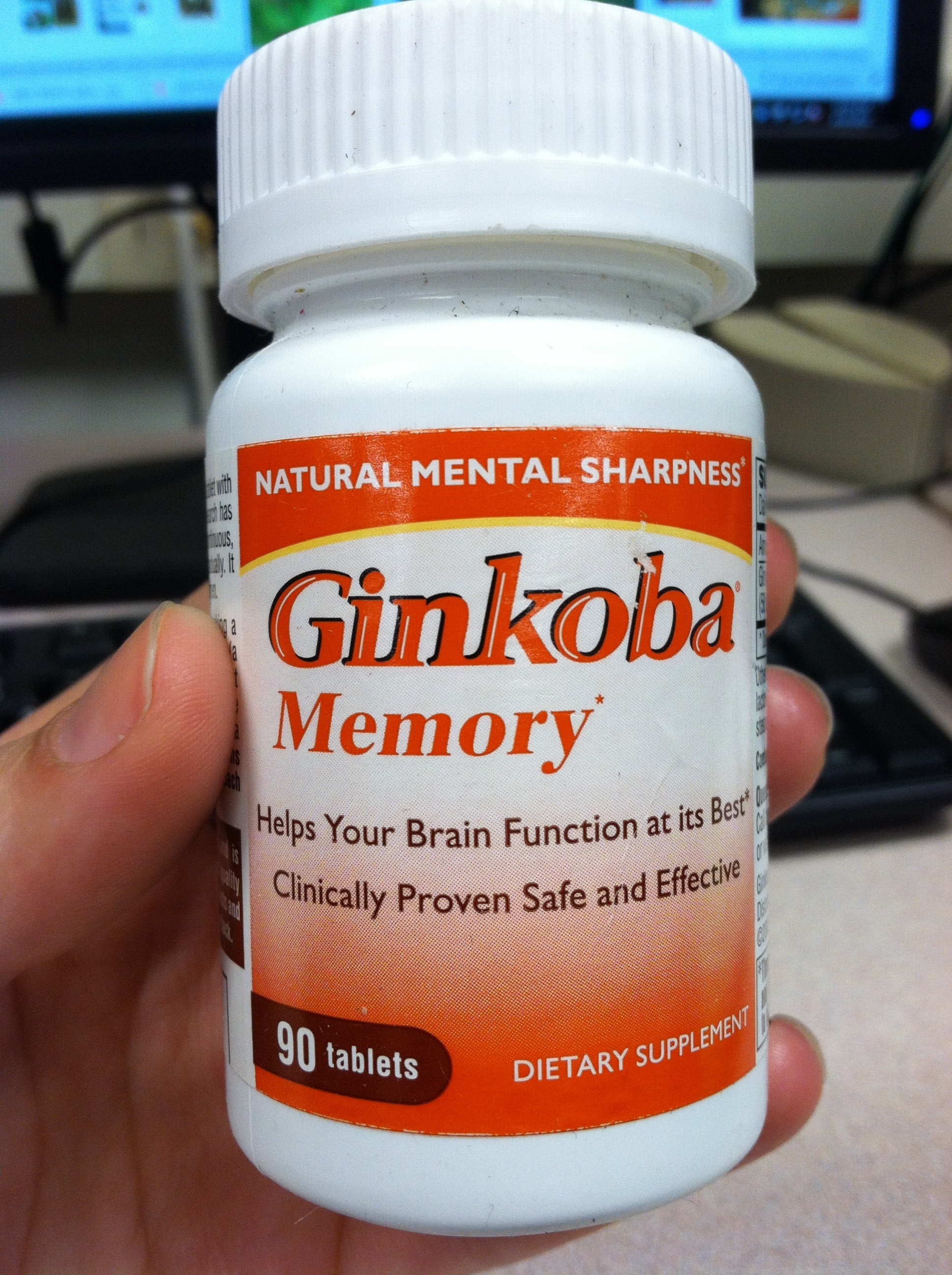Ginkgo : Medical Uses
Medicine: Chinese Traditional Versus Modern Medicine
The ginkgo tree has had a long history in Chinese traditional medicine. Chinese traditional medicine, which continues to be used today, values the seeds the most. Wu Rui, a medical authority in China during the 12th century, listed the gingko seed as one of 540 food plants that had medicinal properties. Classical Chinese scholars created tonics made from the ginkgo seed to address asthma, bronchitis, coughs, irritability of the bladder, and mental disorders. These classical remedies are still widely used today by traditional Chinese medicine practitioners.
In contrast to traditional doctors, modern doctors find the leaves to be the most promising part of the ginkgo. In the 1950’s, Dr. Willmar Schwabe conducted studies that brought the medicinal properties of the ginkgo leaf to the present. In his studies, he isolated several chemical compounds within the ginkgo, most importantly terpenoids and flavonoids. Flavonoids are anti-oxidants that hunt down free radicals that are hurting the body. Terpenoids help increase blood circulation. Due to the increase in blood circulation, the ginkgo aids in improved memory and oxygen circulation in the brain. Additionally, the leaf extract is believed to increase libido and improve certain male sexual dysfunctions by increasing blood flow to the genitals.
Medicine: Does it really work? What the Science Says
Numerous studies have been conducted to confirm the validity of the ginkgo as a medicinal remedy to improve brain function and blood circulation. The effect of gingko supplements for patients with diagnosed dementia, memory impairment, cerebral insufficiency and tinnitus have all been researched. The National Center for Complementary and Alternative Medicine (NCCAM) performed a rigorous study in which they tested 3019 elderly subjects for a matter of 6 years. Every day, they gave half of the subjects 240mg of Ginkgo biloba supplements, while the other half received a placebo. Afterwards, researchers conducted standardized tests on the cognitive function of the participants. The results showed no difference in the cognitive function between the two groups. In contrast, in a study done in 1994 by Vesper and Hänsgen, 94 elderly patients with cerebral insufficiency were given Ginkgo biloba extract for 12 weeks. Significant improvement was seen in the cognitive function of the participants. These studies, and many like it, call into question whether taking ginkgo extract and supplements do or do not enhance brain function.Regardless of whether the ginkgo provides observable benefits, the beliefs surrounding the ginkgo’s healing properties have protected the tree’s persistence through the ages.


